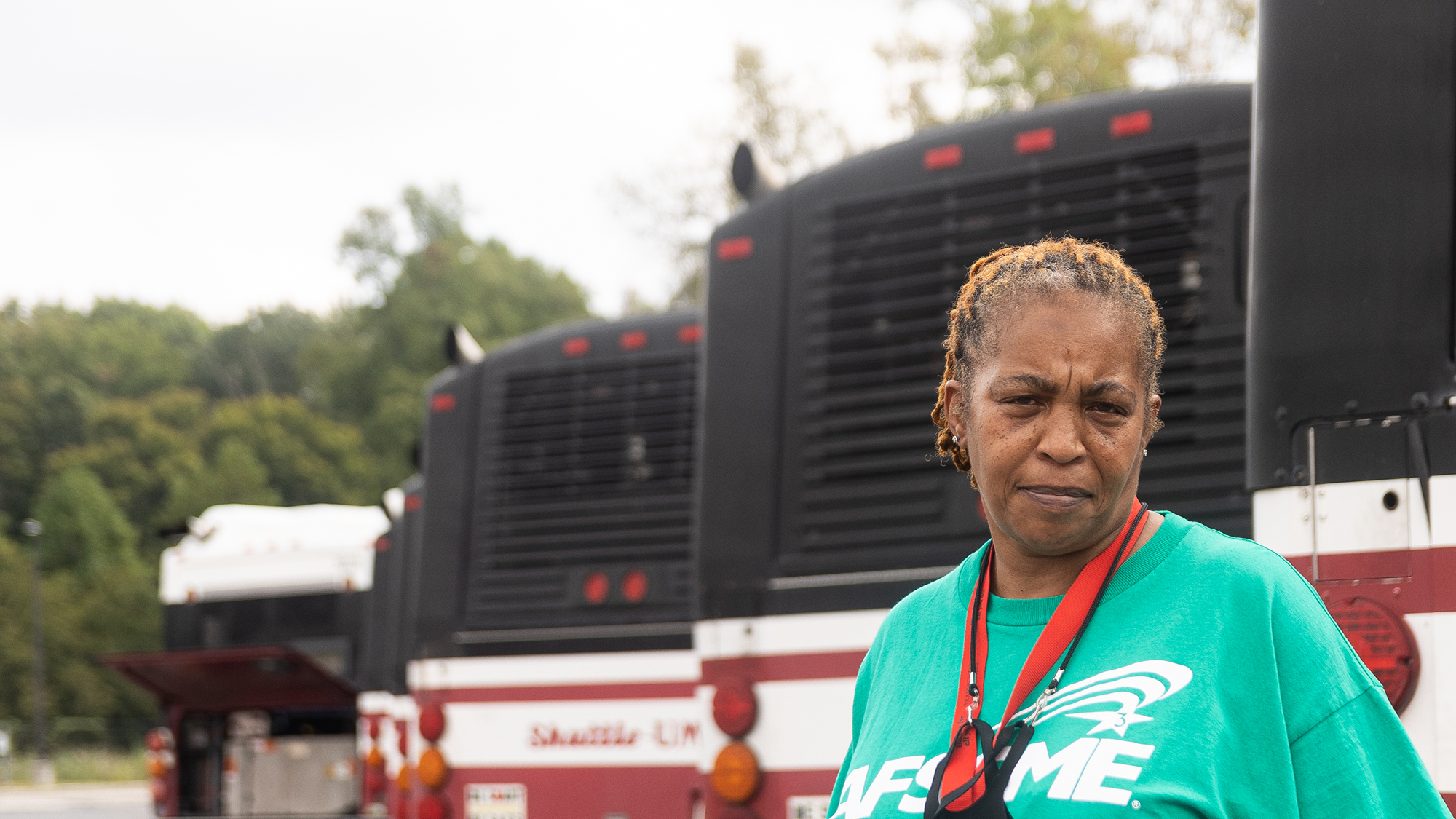A University of Maryland policy that advises Shuttle-UM drivers to admit passengers who refuse to wear masks has prompted condemnation from some drivers, who say the policy puts their safety at risk.
Shuttle-UM drivers are not obligated to do anything that makes them uncomfortable, which can include transporting an unmasked passenger. Still, the policy advises drivers to radio dispatch instead of confronting unmasked passengers, according to an Aug. 30 email from Korbin Figg, a general manager for the Department of Transportation Services.
This policy has been in place for the past year, but drivers’ worries have persisted. Last September, a Shuttle-UM driver was informed he would face disciplinary action after barring three unmasked individuals from boarding his bus. That incident prompted DOTS to put a disclaimer in its policies that employees should not do anything they believe could jeopardize their safety.
This university’s COVID-19 health policy states masks are required at all times on public transportation, including Shuttle-UM buses. Prince George’s County is also under a mask mandate.
Figg also wrote last month that drivers should let passengers ride as long as their nose and mouth are covered, even if they are using a non-CDC-recommended face covering, such as a bandana.
“A few of my coworkers feel like they just don’t care about us and they’re just putting us out here,” said Nancy Vaughn, a Shuttle-UM driver.
[‘Just infuriated’: Shuttle-UM route cuts leave some UMD commuters stranded in Gaithersburg]
Shuttle-UM driver Jakeetah Alston-Ali has seen passengers pull their masks down to eat and drink on buses and try to board buses without masks, which frustrates her, she said.
“I have asthma, it’s very difficult for me, but I must adhere to the policy as an employee and they have to adhere to the policy as well,” she said.
Despite Figg’s guidance to drivers to “not escalate the situation” with unmasked passengers, Alston-Ali said she does not hesitate to reprimand unmasked passengers for their behavior. She is reassured by DOTS’ policy that says drivers should not do anything that makes them uncomfortable.
“I will stop that bus and put every passenger off that bus before I deal with one unruly passenger,” she said.
In a statement, this university reinforced that policy.
“No Shuttle-UM employee should do, or feel compelled to do, anything that they believe puts their safety in jeopardy,” the statement said. “This guidance is meant to help staff avoid situations where they may feel obliged to confront passengers and thereby put themselves and other riders at risk.”
Tenzin Chophel, another Shuttle-UM driver, has also witnessed students not wearing masks on his buses, even if they are coughing or sneezing. But he rarely asks them to comply, because he thinks they should know the guidelines by now, he said.
“If it’s small kids … then you need to tell them, but this is grown-up people,” Chophel said. “They should know better.”
In his email to drivers, Figg also noted that the line for passengers to stand behind would be moved back by six feet. Decals would mark the new standing line and remind passengers to stay distanced from the driver, he wrote.
However, Alston-Ali said she has only seen these decals on about three buses. Passengers have not been paying attention to them even when they are there, she said.
“They look at the stickers and even when you say something to them, they just don’t want to move to the back of the bus,” she said.
[‘Underpaid and left behind’: UMD bus drivers protest for better working conditions]
Drivers are not the only ones upset about the new policy and lack of COVID-19 policy compliance on buses.
Teresa Ugarte, a senior English major who uses Shuttle-UM to get from the Parkside apartment complex to the campus about four days a week, has been extra cautious during the pandemic because two of her roommates have immunocompromised or elderly family members, she said. She would feel uncomfortable riding with unmasked passengers, she added.
“To just not [wear a mask] in that situation, especially when you’re on a bus and there’s not a lot of ventilation and stuff … it’s really selfish,” she said.
Drivers are also frustrated that management is issuing policies without experiencing the risks firsthand.
“We’re outside driving a bus, they’re sitting inside behind their desks with their doors closed,” said Nancy Vaughn, another Shuttle-UM bus driver.
Going forward, Vaughn hopes that management can listen to drivers’ concerns and create a safer environment.
“Something has to change. They have to give us something,” she said.



